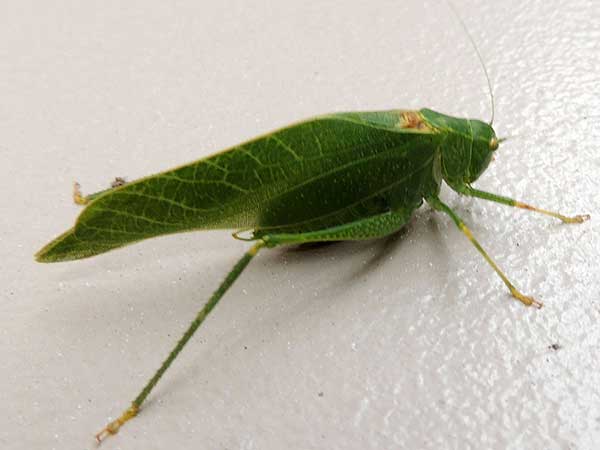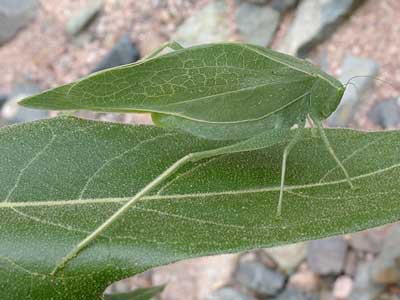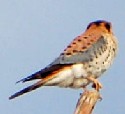California Angle-winged Katydid
Microcentrum californicum

In ponderosa woodland at Tonto Natural Bridge, north of Payson, Gila Co., Arizona. 19 Oct. 2014.
Tettigoniidae -- Katydid Family
The wings of these large crickets are colored and shaped like the leaves of trees among which they hide. With sharp mandibles katydids chew leaves and flower buds. The nymphs take several weeks or months to mature from eggs through to adults. The nymphs, as the immatures are called, look similar to the adults, but lack wings. At night adult males can often be heard high in the canopy stridulating - pulling a series of pegs across a hardened ridge on the wing. These sounds are meant to alert female katydids about the male's location and suitability. There are several katydid species that inhabit ponderosa and other montane woodlands of Arizona and each has a unique night time song.

Feeding and resting on fresh foliage of Arizona Sycamore in Kitty Joe Canyon, Four Peaks, Maricopa Co., Arizona. 2 Sept. 2017.
One time I watched an American Kestrel, a kind of falcon, fly from a high perch and into the canopy of a cottonwood tree some 75 m away and emerge with a katydid. Amazing that the katydid's leafy disguise was breached from such a distance!
